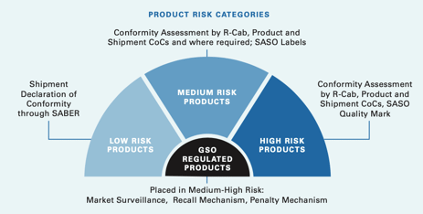sabar Certification

The SABAR Certification is a framework established by the Securities and Exchange Board of India (SEBI) to strengthen the governance, accountability, and transparency of Alternative Investment Funds (AIFs). The certification involves a set of regulatory guidelines aimed at enhancing investor protection and promoting industry integrity, particularly in sectors like private equity, venture capital, and hedge funds. SABAR stands for SEBI AIF Benchmarking and Reporting, and its core purpose is to create standardized benchmarks and transparency norms for the AIF sector in India.
Key Aspects of SABAR Certification
The SABAR Certification outlines several core principles for AIFs in India, including:
1. Transparency: The SABAR framework emphasizes increased disclosure requirements for AIFs, mandating that fund managers provide clear, comprehensive, and standardized reports to investors. This includes regular updates on fund performance, asset valuation, and risk metrics.
2. Benchmarking and Performance Reporting: A significant part of SABAR Certification involves benchmarking fund performance to industry standards. This allows investors to evaluate fund performance against similar funds, making it easier to gauge their return on investment and assess fund management quality.
3. Enhanced Governance Standards: The certification encourages AIFs to adopt high governance standards, including independent oversight on fund operations, adherence to ethical practices, and compliance with SEBI guidelines. This helps to mitigate conflicts of interest and ensures that the fund operates in the best interest of its investors.
4. Risk Management and Compliance: SABAR Certification emphasizes the importance of risk management. AIFs are required to have proper compliance mechanisms and risk management strategies to safeguard investor interests and ensure that funds are managed prudently.
5. Investor Education and Protection: SABAR mandates that AIFs take a proactive approach in educating investors about the nature of alternative investments, including their risk-return profile and long-term objectives. This is especially important because alternative investments can be more complex and volatile than traditional assets like stocks and bonds.
Importance of SABAR Certification
The SABAR Certification has several important implications for the Indian AIF landscape:
Trust and Credibility: By adopting SABAR standards, AIFs can build greater trust with investors. Transparent reporting and benchmarking provide investors with more visibility into fund performance, thereby enhancing credibility.
Market Growth and Investor Confidence: With a strong regulatory framework in place, more investors may be willing to explore alternative investments, leading to sector growth. Increased investor confidence can drive more capital into the AIF sector, supporting startups and other sectors that depend on alternative funding.
Alignment with Global Standards: SABAR aligns the Indian AIF sector with global best practices, making it more attractive for international investors who are accustomed to standardized benchmarks and regulatory protections in their home markets.
The Process of Getting SABAR Certified
The SABAR Certification process requires AIFs to demonstrate their adherence to SEBI’s stipulated guidelines. This involves:
1. Application and Documentation: Fund managers must submit an application to SEBI, along with detailed documentation on fund structure, governance policies, risk management frameworks, and performance reporting mechanisms.
2. Audit and Review: SEBI conducts a thorough audit and review of the AIF’s operations, ensuring that they meet the SABAR standards. Any gaps identified during this phase need to be addressed by the fund before certification is granted.
3. Ongoing Compliance and Monitoring: Once certified, AIFs are expected to maintain compliance with SABAR guidelines. This includes periodic reporting, audits, and adherence to any updates in SEBI’s requirements. Non-compliance can result in penalties or revocation of the certification.
Conclusion
The SABAR Certification is a critical step towards creating a well-regulated and transparent AIF sector in India. For fund managers, it offers a roadmap to establish and operate credible, transparent, and accountable investment funds. For investors, SABAR provides assurance that the funds they invest in are held to high standards of governance and transparency. This framework ultimately fosters a healthier investment environment, with the potential to attract more domestic and international capital to India’s growing alternative investment sector.
- Art
- Causes
- Crafts
- Dance
- Drinks
- Film
- Fitness
- Food
- Giochi
- Gardening
- Health
- Home
- Literature
- Music
- Networking
- Altre informazioni
- Party
- Religion
- Shopping
- Sports
- Theater
- Wellness
- IT, Cloud, Software and Technology


